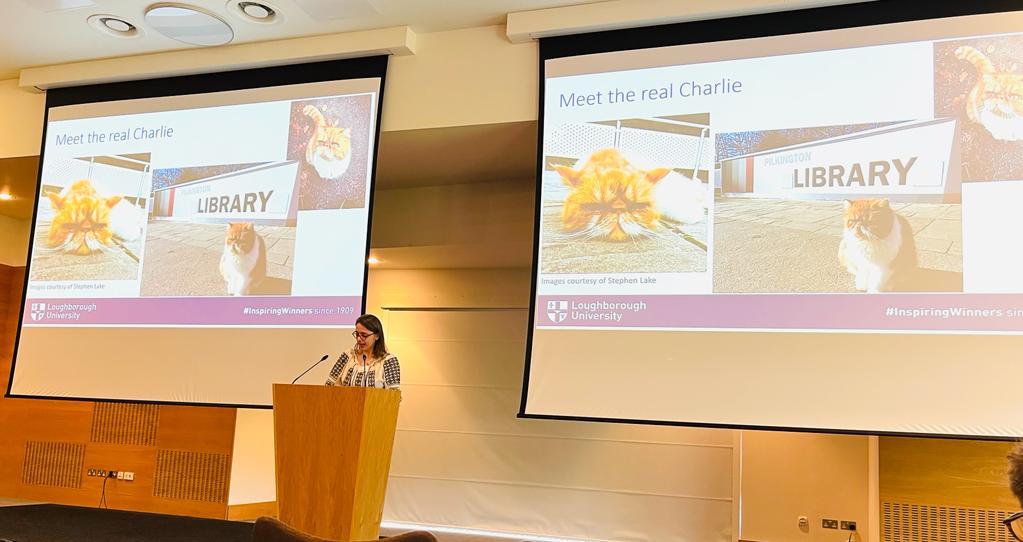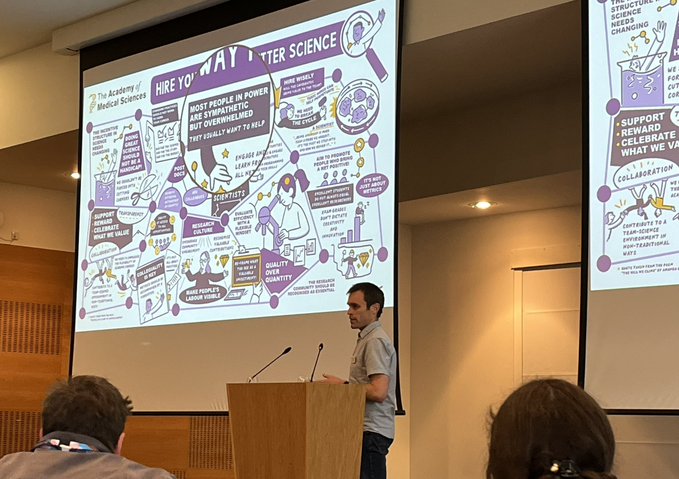This is a guest post by the Library’s new Citizen Science Engagement Officer, Neil Coleman. All of the materials from the conference may be found on the Edinburgh Open Research Journal page.
After a wonderful three days of talks, workshops, and connecting, we can now call a close to a second successful open research conference. This year, the collaborative efforts of members from the Library Research Support teams (led by the wonderful Kerry Miller) and Edinburgh ReproducibiliTea (facilitated by the talented Emma Wilson) brought together speakers and attendees from all over – allowing connections to be forged with representatives across the UK (and further afield!).
On Monday we were treated to a number of intimate workshops, ranging from a targeted discussion on the future of our very own Edinburgh Diamond, to some practical guidance on how to support good Open Research practices in the Arts and Humanities. We even had the privilege of hosting Edinburgh’s very first ‘Research Café’, where Marshall Dozier, Ruth McQuillan and Lauren Hall Hew spoke about their experiences with Open Research, leading to a delightful discussion about the future of their work, and, importantly, how we might all improve. It was a great first step in this new initiative – a chance to have an in person chat about the trials and tribulations, but also the joy and excitement found in research.
Tuesday was ‘the big day’, with over a hundred in-person tickets sold, and more than 300 online attendees throughout the day. We began with a keynote from Kirsty Wallis (Head of Research Liaison at UCL). Her talk painted a detailed picture of some of the amazing work taking place. This included some stand out discussions of the progress they have been making with their support for citizen science and community connectedness with research; the Euston Voices/Euston Young Voices were really stand out case studies of the impact open research practices can have on the world beyond research.

In depth discussions taking place at the Monday Arts and Humanities workshop.
The remainder of the day allowed us to explore the themes of the conference in depth: looking for tangible solutions to global challenges. Our lunchtime keynotes, Daisy Selematsela and Lazarus G Matizirofa gave us a tour of the current status of Open Research in South Africa and the University of Pretoria in particular. Later, Will Cawthorn (our LERU Open Science Ambassador) spoke about the structures and initiatives that are helping to realise the potential of open science. Sandwiched between these fabulous lectures, a diversity of perspectives were offered in formats including lightning talks – from a community representative of a data-focussed environmental initiative (Pauline Ward, Data 4 Climate Action) through to workflows from Xiaoli Chen (DataCite). Throughout, it was inspiring to see the levels of engagement – with a seemingly unending stream of questions and comments from the room and our online community following on from many of the talks, which continued for the in-person group in a drinks reception.

Will Cawthorne presenting on research culture, with perhaps the most beautifully illustrated slide of the day!
The Wednesday closed the workshop sandwich. Gillian Currie and Charlotte Brady worked with attendees to develop ‘Bingo’ cards to promote good academic questioning at conferences. At the same time in the Pentland Suite, the focus was on the 9th Pillar: citizen science and participatory research. Lightning talks from project leads across the colleges were followed by in-depth discussions of the challenges faced by this unique but exciting collection of approaches.
The day and the conference drew to a close in the best possible way: engaging talk with pizza. Facilitated by a wonderful team of early career researchers, the final workshop focused on the relationship between PhD researchers and open research practices. As is typical in all cases of culture change – it has to happen at every level, and there is a risk of early career researchers being left behind. The future of research is open, and so ensuring that those at the start of their careers are well equipped is at the heart of all of the work we do.
With that in mind, then, we can now look forward, where the lessons learned, discussions had, and connections made will ground our work for the coming year. With two successful conferences behind us, this will surely become a tradition with Open Research 2024!

While I would of course never admit to playing favourites, I will admit to being a huge fan of Charlie the cat from Loughborough University who was an unticketed virtual attendee.
